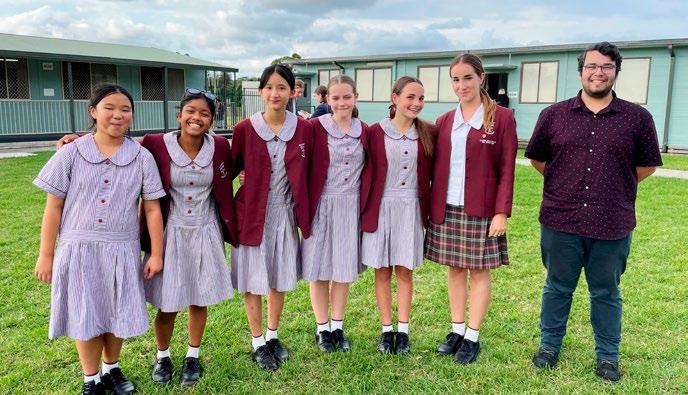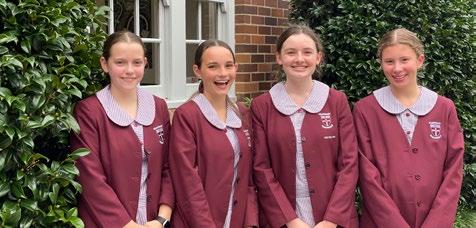
2 minute read
Finding Your Voice
The less obvious, but possibly the greatest challenge is overcoming self and self-doubt. For public speakers, it is the ever-present elephant in the room. Self-doubt first appears in considering the decision to give it all a go in the first place, and it never leaves. The reasons why the public speaker cannot escape self-doubt have something to do with the following questions. What should I talk about and how should I attack the question or stimulus? Is my point of view valid? Why should anyone care about what I think or say? What if they, the audience, don’t understand?
valuable, yet as they navigate the early stages of adulthood our students are discovering a much deeper challenge, and are being forced to consider that public speaking is more about making connections and being the catalyst for an emotional and intellectual response in the audience. A great public speaker is not just heard, they are felt.
Advertisement
Public speaking is as much about finding your inner voice as it is about being heard by the audience, and it’s this truth that leads to the greatest learnings for some of our bravest students.
The most obvious challenge is presented by the audience. In the audience sit competitors, family and loved ones, the adjudicators(s), and a demographic that is incredibly diverse (age and culture), and all those in the audience sit silently and attentively in judgment, a predicament that is daunting, frightening, exciting, complex, and dangerously alluring at the same time. To speak is to be extremely brave, as you’re acutely aware that your intelligence will be judged, your character will be assessed and perhaps unfairly linked to what you say, or don’t say. Those who sit in judgment, are constantly considering – are you relatable, engaging, using appropriate gestures, clear, too fast, too slow, offensive, politically correct, honest, informed, right, wrong, biased, stereotypical, too reliant on palm cards and text, hypocritical, funny, or not? It’s a tough gig, to say the least!
What if they don’t laugh when they should, agree with me, or, worse still, care about what I’m saying? How will I be judged by my peers – will they think of me as elitist? Why would I even bother doing all of this extra work?
Many of our competitive public speakers began as public speakers in primary school where they were able to rely on their personal talents and gifts, namely their intelligence, writing skills, a clear voice, strong general knowledge, and the ability to memorise content, all of which are still extremely
In 2023 Brigidine College students will attend a range of cocurricular public speaking competitions. These include the Catholic Schools’ Debating Association (CSDA) public speaking competition, the Rostrum Voice of Youth competition, the NSW Arts Unit Plain English-Speaking Award, the Lions Youth of the Year Award, and the IGSA Festival of Speech competition. We look forward to seeing our public speakers develop their skills further through these opportunities.
OWEN VALE DIRECTOR COCURRICULAR

We asked some of our 2023 competitive public speakers what they thought was the hardest thing about public speaking and here are their responses.

Engaging older people in the audience is hard, really hard, … it leads to a fear of not being relevant, not being heard, and being judged in a profound and deep way.
– Amelia Hague, Year 9
Finding the speech concept to begin with, trying to stay original, and managing the fact that each year the performance standards just keep rising. Finding the balance is also really hard thing – like truth vs a good story, being relatable but not average, a little bit controversial but still appreciated, funny but not politically incorrect.
– Summer Woods, Year 10
Everything and everyone has a point of difference, staying relevant and connected with everyone in the room is really hard.
– Josephine Crocker,
Year 10

The hardest things are being assessed, having self-doubt, and most of all controlling stress.
– Charlotte Ross, Year 7

